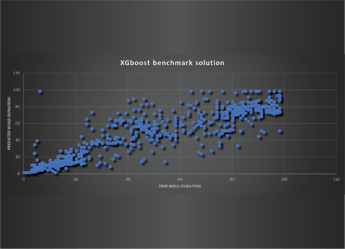Itility Cloud Control: taking the digital transformation road together
Digital transformation is not a ready-made package. Digital transformation as such is tailor made and many companies struggle with becoming fully digital. However, there are ways of approaching your IT environment in a smarter way. Basic ideas that apply to all sorts of businesses and make it easier to start transforming your current organization into a digital one. So let’s have a fresh look at your IT operations.
Currently, IT operations is probably spending much time running your infrastructure, keeping it up to date and in the air. A costly endeavor, both in terms of time and money, and prone to error. This can be done much faster, cheaper and safer if you go digital. In order to become digital, you need to become software-defined. So not only the infrastructure in itself, but also running it is defined by software. This allows you to save valuable resources that can be used for innovation. So, using smart software for IT operations would be your first step towards digital transformation.
Infrastructure-as-code
The next step towards digital transformation lies in analytics. With that, I mean continuous analysis of the smart software we use to carry out IT operations. This ensures continuous improvement of this software, for instance to further diminish manual interference or to have operations run even more smoothly. The data coming out of these analyses can be fed back into the software in a feedback loop. All defined in software, e.g. code. This way, you basically create infrastructure-as-code. And if you can write it in code, it can be made smarter and better. As a data scientist, I have a set of techniques I can use for this, such as machine learning and linear programming - always with the goal to create value. Obviously, this goes not only for IT operations, but for all your business processes. That may be something to pick up further along your digital transformation journey.
Automated back-ups
A practical example of automated IT operations is improving back-ups in a customer’s IT landscape. Often, the back-ups took place at an arbitrary moment during the night. However, due to the vast amount of backups and data to be backed up, it upset the network and possibly the business-critical systems. Applying new algorithms, we have been able to spread the back-ups optimally over the night, without disturbing customer performance. As well as saving on material, this also reduced downtime significantly.
The result of automated IT, whether it is about backups or other elements of your IT operations, is that it saves you time, money and energy that you can use for other things. We call it hands-off IT, to drive hands-on innovation.
This goes to show that digital transformation is a big concept and it means something different for each organization. One thing is for sure: thinking smartly about your processes is key in becoming digital. That is not something you have to figure out by yourself. We’d like to take that road together. Because basic ideas may give you some direction, implementing them is still a custom job.
Read and learn more about Itility Cloud Control - a different approach to IT operations.






